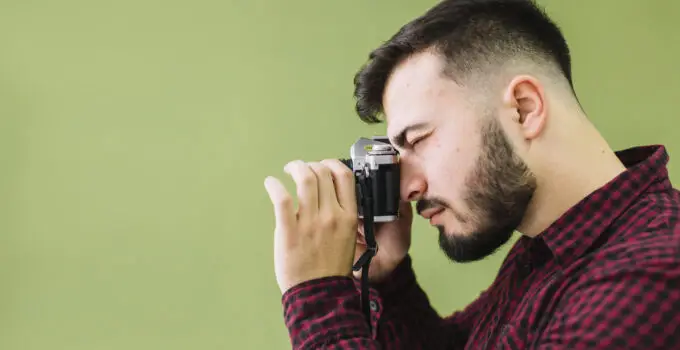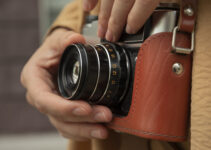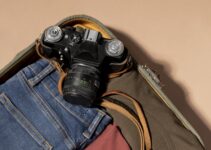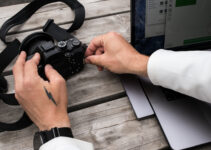Can I use 70% isopropyl alcohol to clean a camera lens?
Have you ever wondered what the best method is for cleaning your camera lens without causing damage?
Maintaining a clean lens is crucial for capturing clear, sharp images, but using the wrong cleaning solution can lead to scratches and other damage.
Isopropyl alcohol is a common household item known for its disinfecting properties, but when it comes to cleaning delicate camera lenses, its concentration and application method matter.
While 70% isopropyl alcohol can be effective for cleaning certain surfaces, it’s essential to understand how to use it properly to ensure the safety and longevity of your lens.
Here how do you support heavy camera lens?
Can I use 70% isopropyl alcohol to clean a camera lens?
Using 70% isopropyl alcohol to clean a camera lens is generally not recommended. While isopropyl alcohol is an effective disinfectant and can remove some grime, it can also damage lens coatings.
Many camera lenses have special coatings designed to reduce glare and improve image quality, and these coatings can be adversely affected by alcohol.
For safe cleaning, it’s best to use a lens cleaner specifically formulated for camera lenses.
Alternatively, you can use a microfiber cloth slightly dampened with distilled water or a dedicated lens cleaning solution.
Start by blowing off any dust with a blower, then gently wipe the lens with the cloth in a circular motion, avoiding excessive pressure.
Always test any cleaning solution on a less visible part of the lens first to ensure it won’t cause damage.
Keeping your lens clean is essential for maintaining image quality, so proper cleaning methods are crucial.
Is 70 isopropyl alcohol safe for camera lenses?
Using 70% isopropyl alcohol on camera lenses is generally not recommended.
While it can effectively clean surfaces, the alcohol can harm the lens coatings, which are designed to enhance image quality and reduce glare. Many modern camera lenses feature multi-layer coatings that may be stripped or damaged by alcohol, leading to reduced performance and image quality.
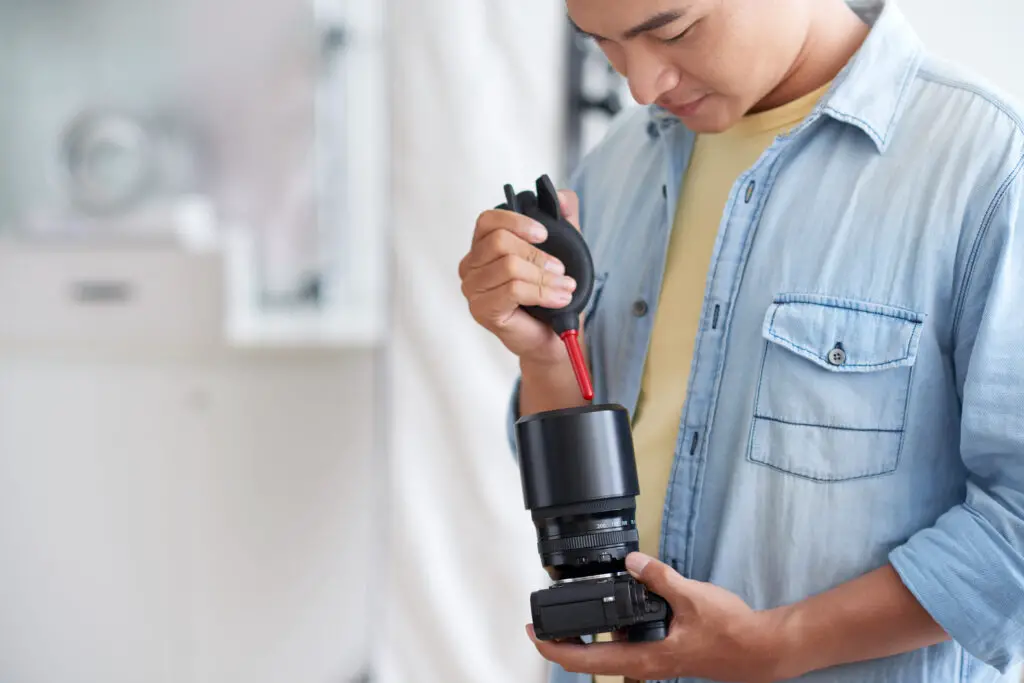
For safe cleaning, it’s best to use a cleaner specifically designed for camera lenses.
These products are formulated to be gentle on coatings while effectively removing dirt and smudges.
If you must use isopropyl alcohol, opt for a lower concentration, such as 50%, and test it on a less visible part of the lens first. Additionally, always use a microfiber cloth to apply the cleaner, as it helps prevent scratches.
Proper lens care is essential for maintaining optimal performance, so choosing the right cleaning method is crucial.
Here, how do you unwrinkle a prade nylon camera bag?
Can I clean a camera lens with isopropyl alcohol?
Can I use 70% isopropyl alcohol to clean a camera lens?
Cleaning a camera lens with isopropyl alcohol is not recommended, particularly at concentrations of 70% or higher.
While isopropyl alcohol is effective for disinfecting and cleaning surfaces, it can damage the lens’s protective coatings.
These coatings are essential for improving optical performance and reducing glare, and alcohol can strip or degrade them, leading to potential long-term damage.
For safe cleaning, it’s best to use a solution specifically designed for camera lenses, as these are formulated to be gentle yet effective.
Alternatively, you can use distilled water or a mixture of distilled water and a few drops of mild dish soap. Always apply any cleaning solution to a microfiber cloth rather than directly onto the lens to avoid oversaturation. Gently wipe the lens in a circular motion to remove smudges and dirt.
Proper lens care is vital for maintaining image quality, so choosing the right cleaning method is essential.
Will isopropyl alcohol damage lens coating?
Can you use 70% isopropyl alcohol to clean electronics?
Yes, 70% isopropyl alcohol can be used to clean electronics, but with caution. It is effective for disinfecting surfaces and removing dirt, oils, and grime without leaving residue.
Many technicians use it to clean circuit boards, screens, and other electronic components because it evaporates quickly, reducing the risk of moisture damage.
However, there are important considerations to keep in mind.
Always turn off and unplug the device before cleaning to avoid electrical shorts. Use a lint-free microfiber cloth or cotton swabs to apply the alcohol, ensuring it does not seep into openings or connectors.
For screens, especially those with coatings, check the manufacturer’s recommendations first, as some screens may be sensitive to alcohol.
Additionally, using a lower concentration, like 50% isopropyl alcohol, may be safer for delicate surfaces. Proper precautions and careful application will help ensure effective cleaning without damaging your electronics
Isopropyl alcohol to clean filters and lenses?
Can I use 70% isopropyl alcohol to clean a camera lens?
Isopropyl alcohol can be used to clean camera filters and lenses, but caution is necessary.
While it effectively removes dirt, oil, and smudges, high concentrations, particularly 70% or more, can damage the coatings on many modern lenses and filters.
These coatings are designed to enhance optical performance and reduce glare, and alcohol can degrade or strip them, leading to potential long-term issues.
If you choose to use isopropyl alcohol, opt for a lower concentration, such as 50%, and always perform a patch test on a less visible area first.
Here, 10 best vera bradely camera bag?
When cleaning, apply the alcohol to a clean, lint-free microfiber cloth rather than directly onto the lens or filter to prevent moisture buildup.
Gently wipe in a circular motion, being careful not to apply too much pressure. For best results, consider using dedicated lens cleaning solutions specifically formulated for optical surfaces to ensure safety and maintain the quality of your equipment.
What to use to clean the body? Is isopropyl alcohol safe? Or any suggestions?
Regular rubbing alcohol effects on camera lens.
Using regular rubbing alcohol on a camera lens can have detrimental effects, particularly if it contains high concentrations (usually around 70% or more) of isopropyl alcohol. While it can effectively clean surfaces, it poses a significant risk to lens coatings.
Many modern lenses feature specialized coatings that improve optical performance and reduce glare, and rubbing alcohol can strip or degrade these coatings over time, resulting in decreased image quality and potential damage.
Additionally, rubbing alcohol can leave behind residue if not properly wiped off, further compromising lens clarity.
If you must clean a lens, it’s better to use a solution specifically designed for optical surfaces, as these are formulated to be safe and effective.
Alternatively, a mixture of distilled water and a few drops of mild dish soap can work well. Always apply any cleaning solution to a microfiber cloth rather than directly onto the lens to prevent oversaturation and ensure safe cleaning practices.
Here, is it safe to pack a camera bag when going through international airpot?
99% Isopropyl Alcohol Lens Cleaning
Using 99% isopropyl alcohol for lens cleaning is generally not recommended due to its potential to damage lens coatings.
While high concentrations of isopropyl alcohol are effective for disinfecting and cleaning surfaces, they can strip or degrade the delicate coatings on camera lenses, which are designed to enhance optical performance and minimize glare.

Damage to these coatings can lead to reduced image quality, unwanted reflections, and long-term deterioration of the lens.
If you need to clean your lenses, it’s better to use a lens cleaning solution specifically formulated for optical surfaces.
These solutions are designed to be safe and effective, ensuring that they won’t harm the coatings.
Alternatively, you can create a mild cleaning solution using distilled water mixed with a few drops of gentle dish soap.
Always apply any cleaning agent to a microfiber cloth rather than directly onto the lens, and gently wipe in a circular motion to avoid scratches and maintain clarity.
Cleaning glass with 100% isopropanol?
Can I use 70% isopropyl alcohol to clean a camera lens?
Cleaning glass with 100% isopropanol (isopropyl alcohol) can be effective for removing dirt, grime, and smudges, but there are a few important considerations.
While isopropanol evaporates quickly, leaving no streaks, using it in its pure form can sometimes be too harsh for certain glass coatings, such as those found on eyeglasses or camera lenses.
It may strip away protective coatings, leading to scratches or reduced optical clarity over time.
For general glass cleaning, 100% isopropanol can be used safely on uncoated glass surfaces, such as windows or mirrors.
However, for delicate or coated surfaces, it’s better to dilute the isopropanol with distilled water (e.g., a 50/50 mixture) or use a cleaner specifically formulated for glass.
When cleaning, apply the solution to a lint-free microfiber cloth rather than directly onto the glass to avoid oversaturation. This method helps ensure effective cleaning without risking damage to coatings.
IS IT SAFE TO USE Denatured Alcohol to clean camera lens?
Cleaning lens with alcohol – still leaves smudges?
If cleaning a lens with alcohol leaves smudges, several factors could be at play. First, using an improper concentration of alcohol can contribute to streaking.
Higher concentrations, such as 70% isopropyl alcohol, may not evaporate quickly enough, leading to residue. Additionally, alcohol can sometimes react with lens coatings, leaving behind a film.
To achieve a clearer result, consider the following tips: use a lint-free microfiber cloth specifically designed for optical surfaces, as these materials are less likely to scratch the lens and effectively lift dirt without leaving fibers behind.
It’s also important to apply the alcohol to the cloth rather than directly onto the lens to avoid oversaturation.
Gently wipe the lens in a circular motion, ensuring not to apply too much pressure.
For stubborn smudges, try a dedicated lens cleaning solution or a mixture of distilled water and mild dish soap, which can provide a more thorough clean without risking damage to the coatings.
Alcohol to clean camera body?
Using alcohol to clean a camera body can be effective, but caution is essential. Isopropyl alcohol, especially at lower concentrations (around 50%), can effectively remove dirt, oil, and fingerprints without leaving residue.
However, using higher concentrations, such as 70% or 99%, may risk damaging the camera’s finish or sensitive components, particularly if it seeps into buttons or openings.
To clean your camera body safely, turn off the camera and unplug it.
Use a soft, lint-free microfiber cloth slightly dampened with the alcohol solution. Avoid applying the alcohol directly to the camera; instead, apply it to the cloth to prevent excess moisture.
Gently wipe the exterior surfaces, focusing on areas prone to grime, such as the grip and around buttons. For delicate areas, consider using a gentle brush or blower to remove dust before wiping.
Regular cleaning with proper methods helps maintain the camera’s appearance and functionality while protecting its finish.
Is 70% isopropyl alcohol good to clean lenses with ?
Using 70% isopropyl alcohol to clean lenses is generally not recommended due to the potential risk of damaging lens coatings.
While this concentration can effectively remove dirt and grime, it can also strip or degrade the protective coatings found on many modern lenses, which are designed to enhance optical quality and reduce glare.
Damage to these coatings can lead to decreased image quality and increased susceptibility to scratches.
For safer cleaning, it’s better to use a solution specifically formulated for optical surfaces.
Alternatively, a mixture of distilled water and a few drops of mild dish soap can be effective without harming the coatings.
When cleaning, apply the solution to a clean, lint-free microfiber cloth rather than directly onto the lens to avoid oversaturation.
Gently wipe the lens in a circular motion, and always ensure the cloth is clean to prevent scratching. Proper care will help maintain the integrity and performance of your lenses over time.
Is cleaning lenses with isopropyl alcohol safe?
Can I use 70% isopropyl alcohol to clean a camera lens?
Cleaning lenses with isopropyl alcohol is not considered safe, particularly at higher concentrations like 70% or above. While isopropyl alcohol is effective for removing dirt and oils, it poses a significant risk to the lens coatings.
Many modern lenses feature specialized coatings that improve optical performance and minimize glare, and isopropyl alcohol can strip or degrade these coatings over time, leading to reduced image quality and potential long-term damage.
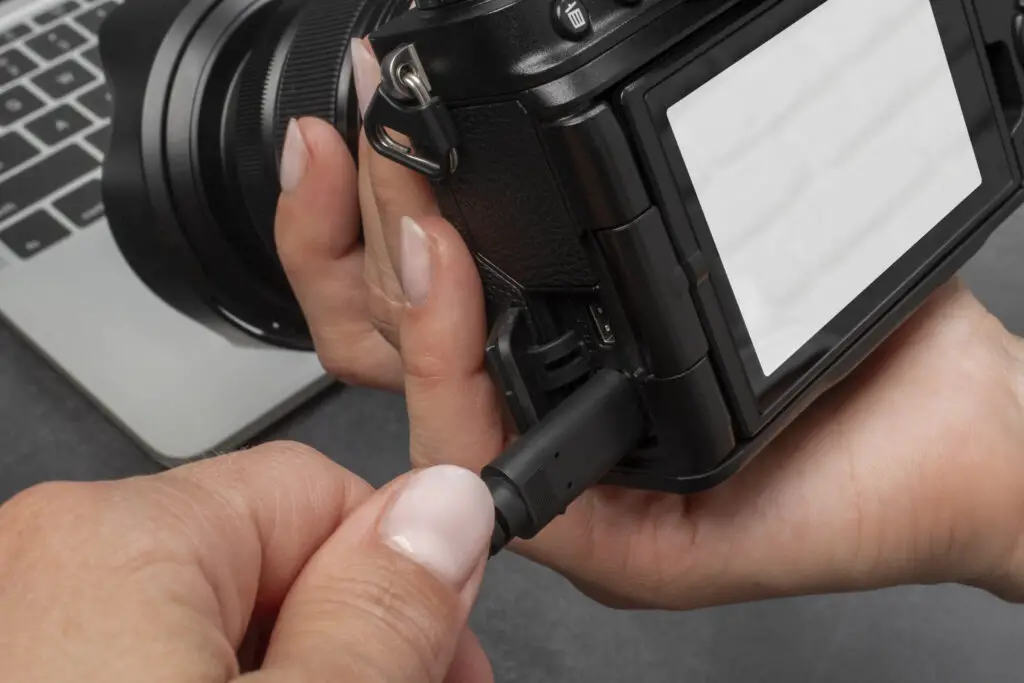
If you need to clean your lenses, it is best to use a cleaner specifically designed for optical surfaces.
These products are formulated to be gentle and safe for coated lenses. Alternatively, a mixture of distilled water and a few drops of mild dish soap can be used.
Always apply any cleaning solution to a microfiber cloth instead of directly onto the lens to avoid moisture seeping into the lens elements.
Proper care and appropriate cleaning methods are essential for maintaining the longevity and performance of your lenses.
Will cleaning eyewear with 70% isopropyl alcohol really damage my glasses?
Cleaning eyewear with 70% isopropyl alcohol can potentially damage your glasses, particularly if they have special coatings.
Many eyeglasses feature anti-reflective, anti-scratch, or UV coatings designed to enhance visual clarity and durability.
Isopropyl alcohol, especially at higher concentrations, can strip or degrade these coatings, leading to diminished optical quality, scratches, or other long-term damage.
While isopropyl alcohol may effectively clean dirt and smudges, it’s safer to use a cleaner specifically formulated for eyewear.
These products are designed to be gentle on coatings and effectively remove oils and debris. If you choose to use isopropyl alcohol, it’s best to dilute it with distilled water or opt for a lower concentration to minimize risk.
When cleaning, always apply the solution to a microfiber cloth rather than directly onto the lenses to avoid oversaturation. Regularly using appropriate cleaning methods will help maintain the integrity and performance of your eyewear.
Here, sholder pain what kind of camera bag
Can you use alcohol wipes on a camera lens?
Using alcohol wipes on a camera lens is generally not recommended. While alcohol wipes can effectively disinfect and clean surfaces, they may contain additives or harsh chemicals that can harm the delicate coatings found on many modern lenses.
These coatings are designed to enhance optical performance and reduce glare, and exposure to alcohol can strip or degrade them, leading to reduced image quality and potential long-term damage.
If you need to clean your lens, it is safer to use a cleaner specifically formulated for optical surfaces. Alternatively, you can use a mixture of distilled water and a few drops of mild dish soap.
When cleaning, apply the solution to a clean, lint-free microfiber cloth rather than directly onto the lens to avoid oversaturation.
Gently wipe the lens in a circular motion, being cautious not to apply too much pressure. Proper cleaning methods are essential for maintaining the longevity and performance of your camera lens.
Is using 70% isopropyl alcohol wipes to clean your phone screen and camera lens safe?
Using 70% isopropyl alcohol wipes to clean your phone screen is generally safe, especially if the screen is made of glass and does not have a special coating.
Many manufacturers recommend using alcohol wipes to disinfect surfaces, as they effectively kill germs and remove smudges.
However, if your phone has an anti-reflective or other coatings, frequent use of alcohol wipes may degrade these over time, leading to decreased visibility.
For cleaning camera lenses, it’s best to avoid using 70% isopropyl alcohol wipes. The coatings on camera lenses are particularly sensitive, and alcohol can strip or damage them, resulting in reduced image quality and potential long-term harm.
Instead, use a cleaner specifically formulated for optical surfaces, or a mixture of distilled water and a mild dish soap.
Always apply any cleaning solution to a microfiber cloth rather than directly onto the lens or screen to prevent oversaturation and potential damage.
Can I use alcohol to clean a camera lens?
Related faq’s
How to clean camera lens?
Can i clean my glasses lens with alcohol
Can you clean camera lens with glasses cleaner
Yes, you can clean a camera lens with glasses cleaner, but it’s important to ensure that the cleaner is safe for coated lenses.
Many glasses cleaners are designed to be gentle and effective, making them suitable for camera lenses as well.
Before applying, check the ingredients to avoid any harsh chemicals that might damage the lens coatings. Use a clean, lint-free microfiber cloth to apply the cleaner, gently wiping in a circular motion.
This method helps remove smudges and dirt without scratching the lens or degrading its coatings, ensuring optimal image quality.
Is it okay to use isopropryl alcohol (IPA) on camera lenses?
I used a bit of 70% isopropyl on my Pico 4 lenses to clean them. How screwed am I?
Using 70% isopropyl alcohol on your Pico 4 lenses could potentially harm the lens coatings, but the extent of damage depends on several factors, including the duration of exposure and the specific coatings used.
If you didn’t notice any immediate damage, such as cloudiness or streaking, you might be okay, but repeated use of alcohol can lead to cumulative effects. To minimize further risks, avoid using isopropyl alcohol in the future.
Instead, opt for a cleaner specifically formulated for optical surfaces, or use a mixture of distilled water and mild dish soap with a microfiber cloth for cleaning.
Can i use alcohol wipes IPA 70% v/v to clean the lens’s on my lenovo explorer?
Using 70% isopropyl alcohol (IPA) wipes to clean the lenses on your Lenovo Explorer is not recommend.
While these wipes can effectively disinfect surfaces, they may damage the special coatings on the lenses, leading to reduced clarity and performance over time.
Instead, opt for a cleaner specifically designed for optical surfaces or a mixture of distilled water and mild dish soap.
Apply the solution to a clean, lint-free microfiber cloth, then gently wipe the lenses in a circular motion. This method helps remove smudges and dirt without risking damage to the coatings, ensuring optimal visual quality.
Can i use isopropyl alcohol on the lens to clean them?
Using isopropyl alcohol to clean lenses is generally not recommend, especially at concentrations like 70% or higher. While it can effectively remove dirt and smudges, it poses a risk to the protective coatings on many lenses, such as anti-reflective and scratch-resistant layers.
Alcohol can strip or degrade these coatings, leading to reduced image quality and potential long-term damage.
For safer cleaning, use a solution specifically formulated for optical surfaces or a mixture of distilled water and mild dish soap.
Always apply the cleaner to a microfiber cloth, avoiding direct application to the lens, to prevent moisture from seeping into the lens elements.
Conclusion
In conclusion, using 70% isopropyl alcohol to clean a camera lens is not advisable due to the potential risk of damaging lens coatings.
While it may effectively remove dirt and fingerprints, alcohol can strip or degrade protective coatings designed to enhance optical performance.
This can lead to decreased image quality and long-term harm to the lens. For safe cleaning, it is best to use a cleaner specifically formulated for optical surfaces or a mixture of distilled water and mild dish soap.
Always apply any cleaning solution to a microfiber cloth rather than directly onto the lens to ensure optimal care and maintenance.

